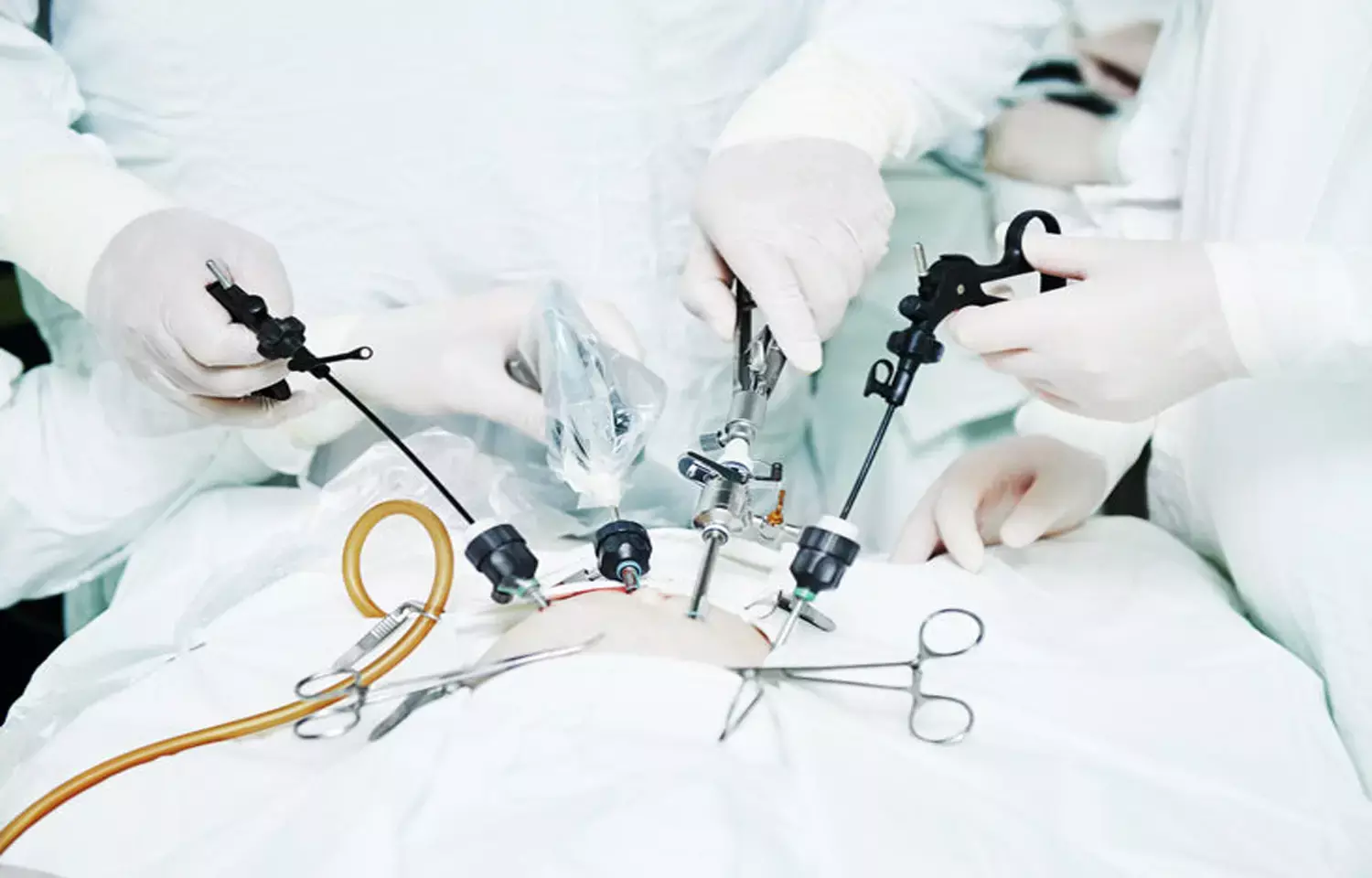- Home
- Medical news & Guidelines
- Anesthesiology
- Cardiology and CTVS
- Critical Care
- Dentistry
- Dermatology
- Diabetes and Endocrinology
- ENT
- Gastroenterology
- Medicine
- Nephrology
- Neurology
- Obstretics-Gynaecology
- Oncology
- Ophthalmology
- Orthopaedics
- Pediatrics-Neonatology
- Psychiatry
- Pulmonology
- Radiology
- Surgery
- Urology
- Laboratory Medicine
- Diet
- Nursing
- Paramedical
- Physiotherapy
- Health news
- Fact Check
- Bone Health Fact Check
- Brain Health Fact Check
- Cancer Related Fact Check
- Child Care Fact Check
- Dental and oral health fact check
- Diabetes and metabolic health fact check
- Diet and Nutrition Fact Check
- Eye and ENT Care Fact Check
- Fitness fact check
- Gut health fact check
- Heart health fact check
- Kidney health fact check
- Medical education fact check
- Men's health fact check
- Respiratory fact check
- Skin and hair care fact check
- Vaccine and Immunization fact check
- Women's health fact check
- AYUSH
- State News
- Andaman and Nicobar Islands
- Andhra Pradesh
- Arunachal Pradesh
- Assam
- Bihar
- Chandigarh
- Chattisgarh
- Dadra and Nagar Haveli
- Daman and Diu
- Delhi
- Goa
- Gujarat
- Haryana
- Himachal Pradesh
- Jammu & Kashmir
- Jharkhand
- Karnataka
- Kerala
- Ladakh
- Lakshadweep
- Madhya Pradesh
- Maharashtra
- Manipur
- Meghalaya
- Mizoram
- Nagaland
- Odisha
- Puducherry
- Punjab
- Rajasthan
- Sikkim
- Tamil Nadu
- Telangana
- Tripura
- Uttar Pradesh
- Uttrakhand
- West Bengal
- Medical Education
- Industry
Standardized management protocols improve outcomes after emergency laparotomy

Following an emergency laparotomy, standardized treatment methods enhanced results, says an article published in the British Journal of Surgery. Acute high-risk abdominal surgery is prevalent, as are the risks of organ failure, the requirement for intensive care, death, and a lengthy hospital stay. Terje Timan and colleagues conducted this study to evaluate the application of standardized management.
A prospective analysis of all persons undergoing emergency laparotomy was conducted over a 42-month period (2018-2021), and the results were compared to those of a retrospective control group. For all patients, a new standardized clinical protocol was implemented, which included prompt bedside physical evaluation by the surgeon and anesthetist, interprofessional communication regarding resuscitation location, elimination of unnecessary factors that could delay surgery, enhanced operating theater competence, enhanced recovery care, regular epidural, and regular early warning scores. The 30-day mortality rate was the main outcome. The duration of hospital stay, the requirement for critical care, and surgical complications were secondary objectives.
The key findings of this study were:
1. There were 1344 patients in all, including 663 in the control group and 681 in the intervention group.
2. The revised strategy shortened the time between the decision to operate and the commencement of surgery (3.80 against 3.22 h) and increased the usage of antibiotics (81.4 versus 94.7 percent).
3. There were fewer anastomoses (22.5 versus 16.8 percent).
4. The 30-day mortality rate in the historical control group was 14.5%, while it was 10.7% in the intervention group (P = 0.045).
5. The average length of stay in the hospital (11.9 vs 10.2 days; P = 0.007) and ICU (5.40 versus 3.12 days; P = 0.007) was similarly reduced. Serious surgical complications (grade IIIb-V) were less common (37.6 versus 27.3%; P = 0.001).
Reference:
Timan, T. J., Karlsson, O., Sernert, N., & Prytz, M. (2023). Standardized perioperative management in acute abdominal surgery: Swedish SMASH controlled study. In British Journal of Surgery. Oxford University Press (OUP). https://doi.org/10.1093/bjs/znad081
Neuroscience Masters graduate
Jacinthlyn Sylvia, a Neuroscience Master's graduate from Chennai has worked extensively in deciphering the neurobiology of cognition and motor control in aging. She also has spread-out exposure to Neurosurgery from her Bachelor’s. She is currently involved in active Neuro-Oncology research. She is an upcoming neuroscientist with a fiery passion for writing. Her news cover at Medical Dialogues feature recent discoveries and updates from the healthcare and biomedical research fields. She can be reached at editorial@medicaldialogues.in
Dr Kamal Kant Kohli-MBBS, DTCD- a chest specialist with more than 30 years of practice and a flair for writing clinical articles, Dr Kamal Kant Kohli joined Medical Dialogues as a Chief Editor of Medical News. Besides writing articles, as an editor, he proofreads and verifies all the medical content published on Medical Dialogues including those coming from journals, studies,medical conferences,guidelines etc. Email: drkohli@medicaldialogues.in. Contact no. 011-43720751


